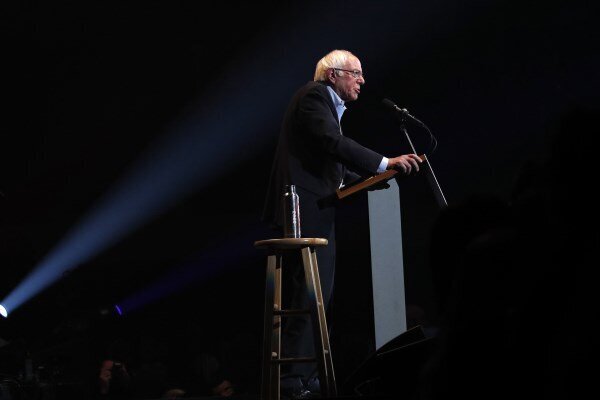The U.S. and a smart oligarchy

TEHRAN - The Democratic primary is a serious test for the U.S., and one should wait and see how the remaining hopes for a free and fair presidential election in the U.S. and the real domination of democracy in the country will be destroyed by eliminating persons like Bernie Sanders.
The American people vote in practice and there is no change in their votes. The point is that the factor that determine the results is not the majority of votes, but an electoral system called the "Electoral College".
For example, in the 2016 election, the major candidate of Democratic Party Hillary Clinton won 65 million of people’s votes, while Republican candidate Donald Trump won 62 million of people’s votes, but he became president with more electoral votes.
Such a thing previously happened in the U.S. in 2000. At the time, Al Gore won 500,000 popular votes more than George W. Bush, but Bush, the Republican candidate, became the U.S. president.
Despite all the weaknesses of the Electoral College system and arguments between its supporters and opponents, it cannot be identified as the main threat to democracy in America. Many believe that the significant role of wealth and power in American election engineering is the most important danger that has caused a safe election become a dream in this country.
This issue led many experts to refer to the American political system as a plutocracy (the superiority on rich minority over poor majority) or an oligarchy.
In this regard, Kevin Phillips, a prominent American writer and political strategist in Richard Nixon’s government said that the United States is not a democracy, but a plutocracy in which money and government are strongly intertwined.
Currently, the support of power and wealth holders for taking power in the U.S. political system is of the most importance. Groups that are known as “Super PAC” these days have a key role in empowering candidates in various American political positions.
George McGovern is one of the most telling examples in this regard. McGovern was a Democrat and Richard Nixon’s rival in the 1972 presidential election. He was opposed by the Democratic Party because of his stance against the Vietnam War, cutting U.S. military budget and refusing the support of lobbyists and financial institutions.
The Democratic Party, backed by lobbyists, launched a movement called “anyone except McGovern”. Therefore, he lost the votes of the Democratic Party, while he had not had the Republicans’ votes from the beginning, so he lost the election. He later said, “I lost to Nixon because I was against the war”.
Now few may remember those years, but this strange election engineering is still used as a key model by lobbyists and power-holders, to the extent that many now refer to Bernie Sanders as the second McGovern, believing he will also face lobbyists’ anger because of its opposition to wealth-holders as well as opposition to U.S. military policies around the world.
Some figures like Michael Bloomberg, the tenth richest man in the U.S., has further reinforced the idea of the importance of money and wealth in the U.S. election by his sudden presence in the Democratic race.
Bloomberg distributes free food and booze in many campaign events and has spent more than $ 300 million on advertising in the past month alone. His efforts have been effective, and Bloomberg has gained a good place in the polls despite not being present in the Iowa and New Hampshire elections.
Figures like Bloomberg in the U.S. political system show that money and wealth have become a key factor in the U.S. to help candidates to take power. For example, by looking at the spending of candidates in congressional elections, we will find out that nearly 90 percent of the candidates who have spent the most have won the U.S. congressional election.
The U.S. election is limited to the Democratic and Republican parties, and the electoral process is designed in a way that the third party is less likely to take part in the race, so people have to choose someone from the Democratic or Republican Parties.
In fact, any third party is practically absent from the debates, is not reflected by media outlets and is not financially backed. This is what many called that a two-party dictatorship or a smart oligarchy in America.
Leave a Comment